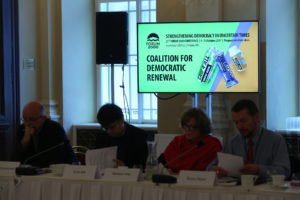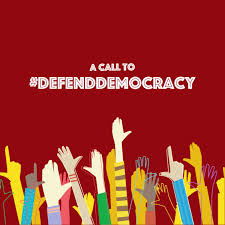
21st Forum 2000 Conference
For the United States to remain a credible leader of the free world, the world must see that American democracy, which today looks neither efficient nor stable, is once again capable of renewing itself, argues Hal Brands, Professor of Global Affairs at the Johns Hopkins University School of Advanced International Studies. On China and other important global issues, President Joe Biden should ground his statecraft in democratic solidarity, emphasizing enhanced cooperation with countries that share the United States’ values as well as its geopolitical interests, he writes for Foreign Affairs:
Collaboration with democracies cannot solve every problem, and invocations of democratic solidarity will ring hollow if they are not backed by sufficient geopolitical commitment and hard power. But such cooperation is nonetheless crucial to U.S. success on issues such as combating Chinese and Russian political warfare, preserving a free and open Internet, and addressing pandemics and climate change. It is also a way of demonstrating that Washington can still exercise principled leadership, grounded in democratic values, of the countries most committed to the liberal order.
 Skepticism of international organizations and multilateralism did not shield the United States from the ravages of COVID-19; the only answer to such a transnational scourge was more, not less, international cooperation, Brands adds:
Skepticism of international organizations and multilateralism did not shield the United States from the ravages of COVID-19; the only answer to such a transnational scourge was more, not less, international cooperation, Brands adds:
Withdrawing from international institutions and from agreements such as the Paris climate accord did not make these entities perform better so much as it isolated Washington and ceded influence to corrupt authoritarians and U.S. competitors. And although the drawbacks of economic integration with China were, by 2020, undeniable, the only way to mitigate them—short of implausible autarky—was deeper economic integration with the democratic allies. RTWT







